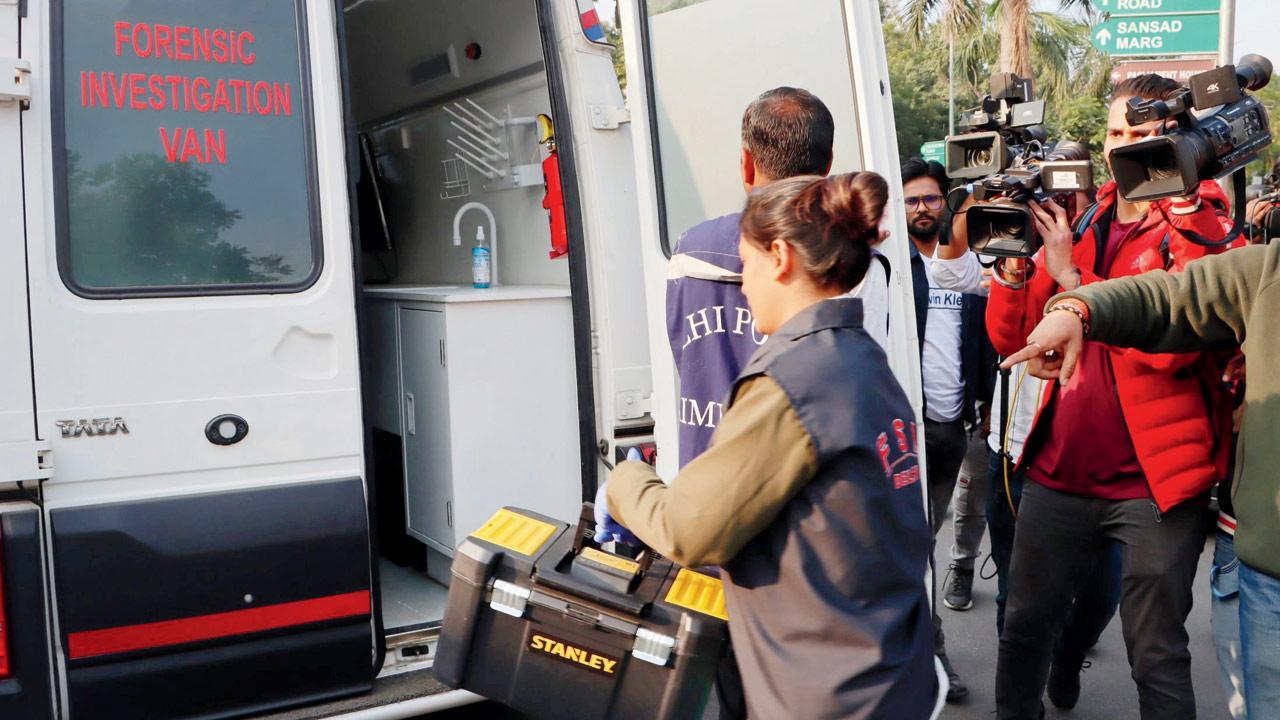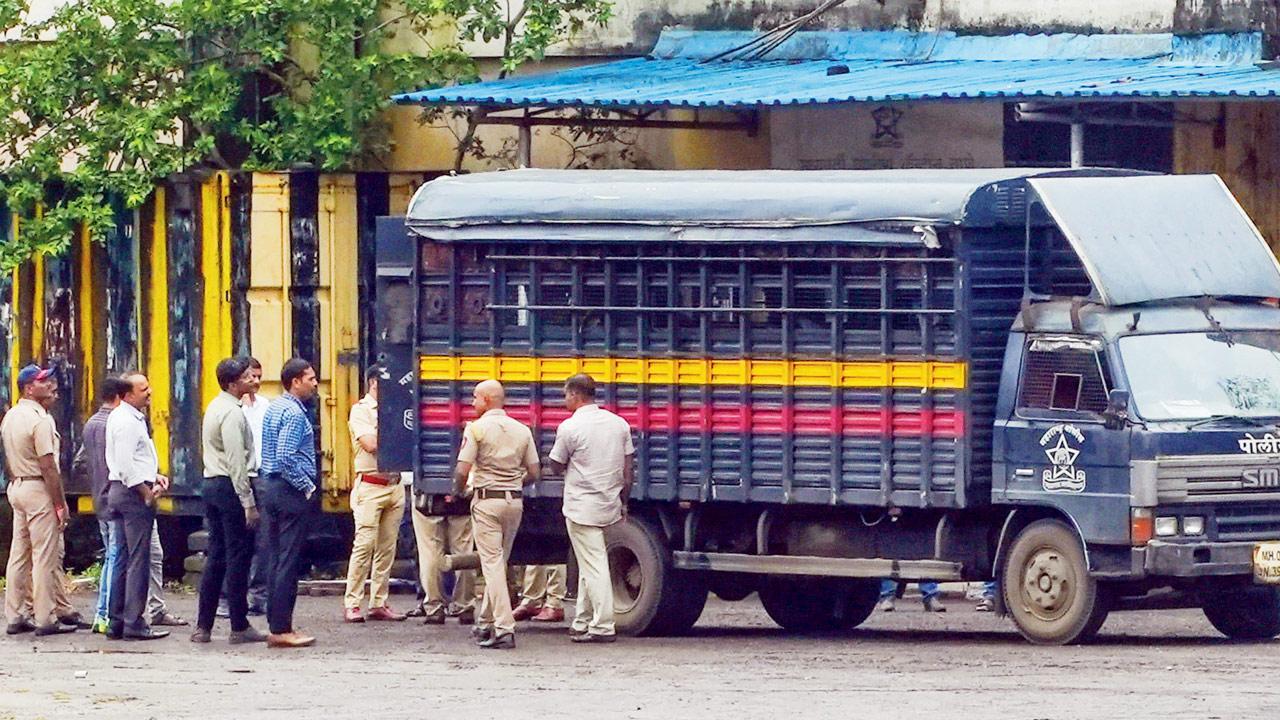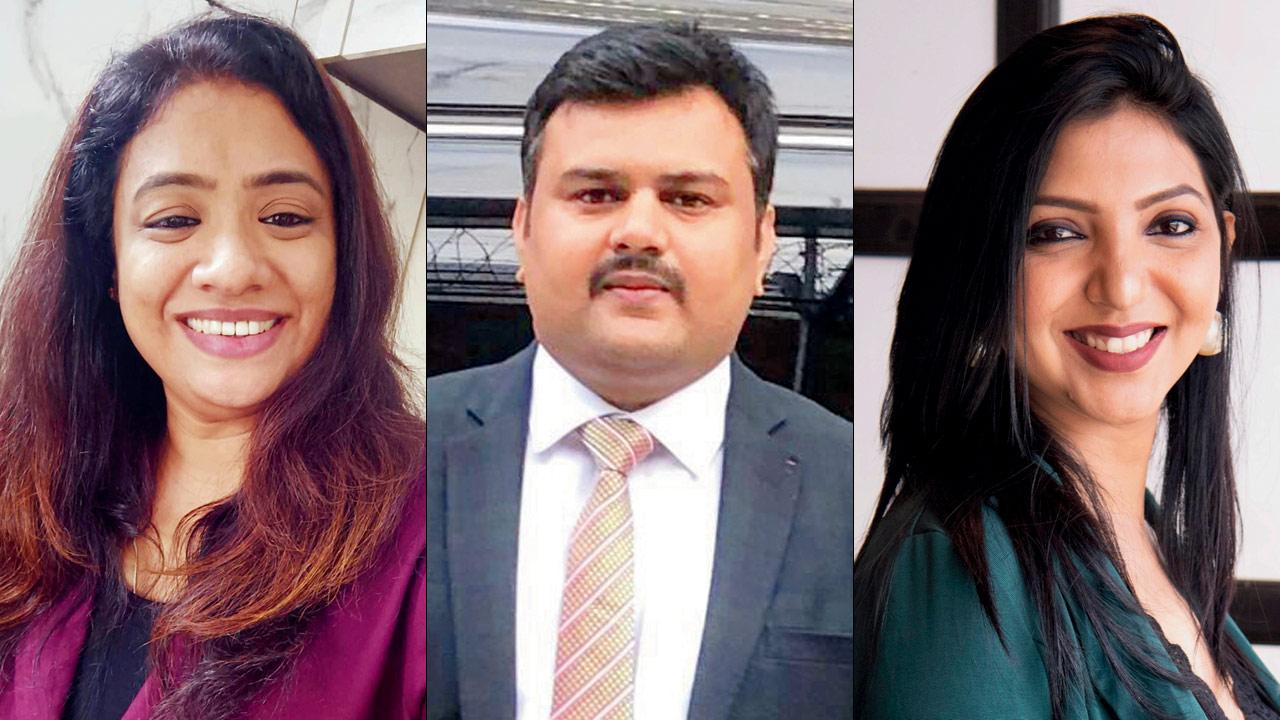The authorities’ move to invite private firms to operate mobile forensic vans could compromise the credibility of the evidence gathered at crime scenes, warn experts

Forensic personnel load samples from the crime scene following the Parliament security breach in December 2021 in New Delhi. File pic/Getty Images
Is it wise for the authorities to outsource collection of forensic evidence from crime scenes to a private firm? This is the question raised by many in Maharashtra’s criminal investigation and justice circles ever since the state Directorate of Forensic Science Laboratories (DFSL) floated tenders for private firms interested in procuring and operating 251 mobile forensic vans for the state.
ADVERTISEMENT
Experts have flagged the risk of compromised chain of custody with a private third party, which will further raise questions over admissibility of evidence during the course of the trial.

A forensic team examines the police van in which Akshay Shinde, the accused in the Badlapur school sexual assault case, was killed in a “police encounter” in Thane last week
Former DFSL director B B Daundkar confirmed the concerns: “Crime scene investigation requires expertise. Only proper collection, preservation and scientific analyses of crucial forensic evidence can help corroborate the prosecution’s case with the scientific findings, thereby proving the case beyond reasonable doubts during the course of trial. Such scientific analysis can only be done by those with trained hands and expertise.”
Employees at the state or regional forensic science laboratories (FSLs) are selected through the Maharashtra Public Service Commission recruitment process. They are provided with continuous on-the-job training across several departments, such as biology, ballistics, narcotics, explosives, cyber forensics and DNA. They also get the chance to visit the crime scene, collect the evidence and conduct analysis at the laboratory, so the chain of custody is clear and there is no chance of tampering with the evidence, explained Daundkar.
On the other hand, a private firm’s employees are unlikely to have the same kind of practical expertise. “The outsourced agency might hire private forensic degree-holders or those with BSc or MSc degrees [in Physics, Chemistry or Biology], but can they be presumed to be forensic experts with practical expertise? Honestly, the answer is no,” he said, adding, “Further, the [DFSL] tender clearly states that those hired by the system integrator, will be on contractual basis. This means that the hired personnel may or may not perceive this as a long-term career. In such a scenario, who will be held accountable for any lapses in evidence collection? Will they even be available for the trial if the court summons them after a few years to explain the chain of custody?”

Nisha Menon, Amol Deshmukh and Advocate Mohini Priya
Section 176 (3) of the Bharatiya Nagarik Suraksha Sanhita (BNSS) has now made forensic investigation mandatory for any crime attracting punishment of seven years or more. With a rising crime rate and limited infrastructure, state governments are racing to upgrade facilities and come up with solutions to meet the anticipated surge of forensic workload. One of the proposed solutions is to outsource crime scene management to private experts and organisations, explained Nisha Menon, forensic expert and consultant.
Allowing private firms to manage the crime scene is not an ideal solution, though. “The credibility of evidence gathered by privately hired individuals through third-party agencies may be challenged, as their status as ‘experts’ may not meet the standards required by law. Furthermore, tracking down and summoning these individuals for trial testimony years after the fact poses significant challenges,” said Menon.
Advocate Dinesh Tiwari, who has been practising criminal law for over two decades, said, “The very idea of outsourcing such a crucial aspect of investigation is unthinkable. The problem is three-pronged—firstly, these outsourced employees may not be paid enough salary by private firms, and they may be vulnerable to corrupt practices. Secondly, their certificate may not stand at par with one issued by government experts. And, finally, not being government servants, they would not be protected under the law, the way government servants are,” he said.
‘Field forensics wing'
Legal and forensic experts are of the view that instead of hiring a private firm, the state should handpick fresh police recruits—with a BSc or MSc in Biology, Chemistry or Physics, or BE in IT or graduation in Computer Science—and train them in crime scene investigation. These trained police personnel can then be deployed on mobile forensic vans to study crime scenes and collect evidence across the districts/talukas.
This, said Daundkar, would help maintain the chain of custody. “The FSL is under the Home department and is headed by a police officer of the rank of DGP (Legal and Technical). A similar forensic crime scene wing can be set up under the supervision of the State CID with fresh police recruits with BSc and MSc degrees. This would help ensure protection of the crime scene, collection of evidence and its analysis at FSLs in a highly secure manner, with no scope for any outsider or third-party tampering,” he said, adding that it would be along the lines of specialised analysts such as handwriting and fingerprint experts, and police photographers, who assist the police in crime scene study and serve under the aegis of the State CID.
Experts also pointed out that since policemen serve under the state home department’s aegis, these forensic cops will also be governed by state government recruitment rules and the police manual, resulting in a greater likelihood of ethics being adhered to. Moreover, these police personnel will also be available to give testimony whenever court trials begin.
As far as cost efficiency is concerned, Daundkar said expenditure can be further controlled by analysing the crime graph of each taluka/district within the state, and allocating fully equipped mobile forensic vans to those area which see a higher crime rate.
Menon added, “Moreover, utilising internal personnel will enhance control and accountability. This cost-effective approach will also foster expertise within the department, as continuous training and hands-on experience will sharpen the skills of the selected policemen building a robust, in-house capacity for crime scene investigation, ultimately contributing to more efficient and successful justice outcomes.”
Development of field forensic capabilities is the need of the hour in India. Amol Deshmukh, senior faculty member at the government-run Institution of Forensic Science in Mumbai, said, “Field forensics and laboratory forensics are equally important in justice delivery systems. They are just like two sides of a coin. Unfortunately, in India, only the lab forensics arm got developed, while the other arm remains weak and ignored.”
Legal admissibility
A private forensic analyst or investigator may be an expert in a criminal case as neither Section 45 of the Indian Evidence Act, nor Section 39 of the Bharatiya Sakshya Adhiniyam restrict the definition of ‘expert’ as an investigator tied to the state.
Mohini Priya, Advocate on Record at the Supreme Court, cited a Delhi High Court ruling in the Autodesk Inc & Anr versus AVT Shankerdas & Anr case in 2008, that supported this. The HC had observed that a private forensic investigator’s testimony or expert analysis need not be disregarded or rejected simply because their services were engaged by the plaintiff.
However, with regard to admissibility, the court’s permission may have to be obtained via an application, she said, citing the Andhra Pradesh High Court judgement in Virothi Tirupathi Rao v Kota Venu case in 2016. The court had refused to admit an expert opinion from a private expert, as the party which had hired the expert had not exercised their option to first petition the court for officially appointing one.
 Subscribe today by clicking the link and stay updated with the latest news!" Click here!
Subscribe today by clicking the link and stay updated with the latest news!" Click here!







